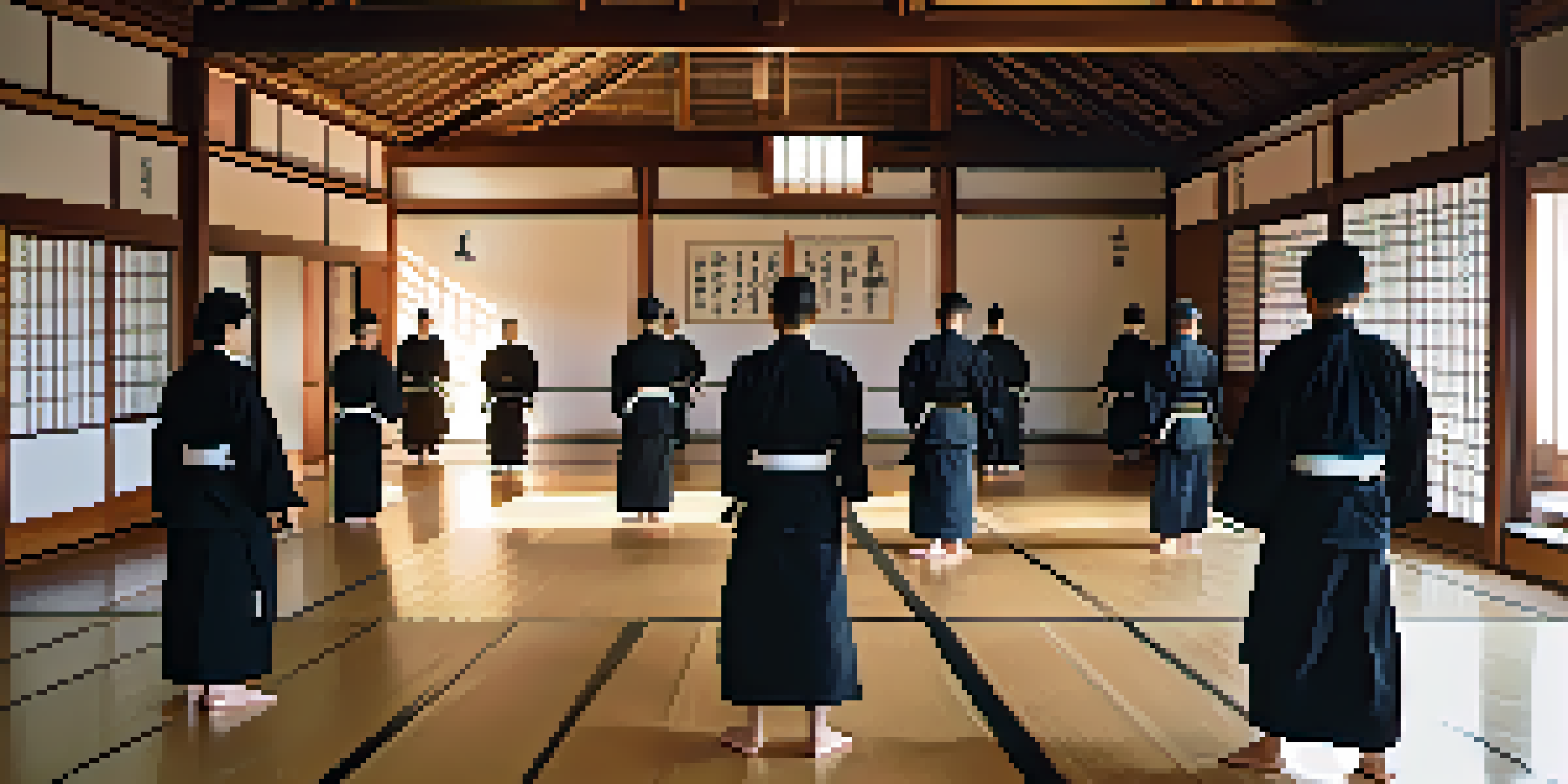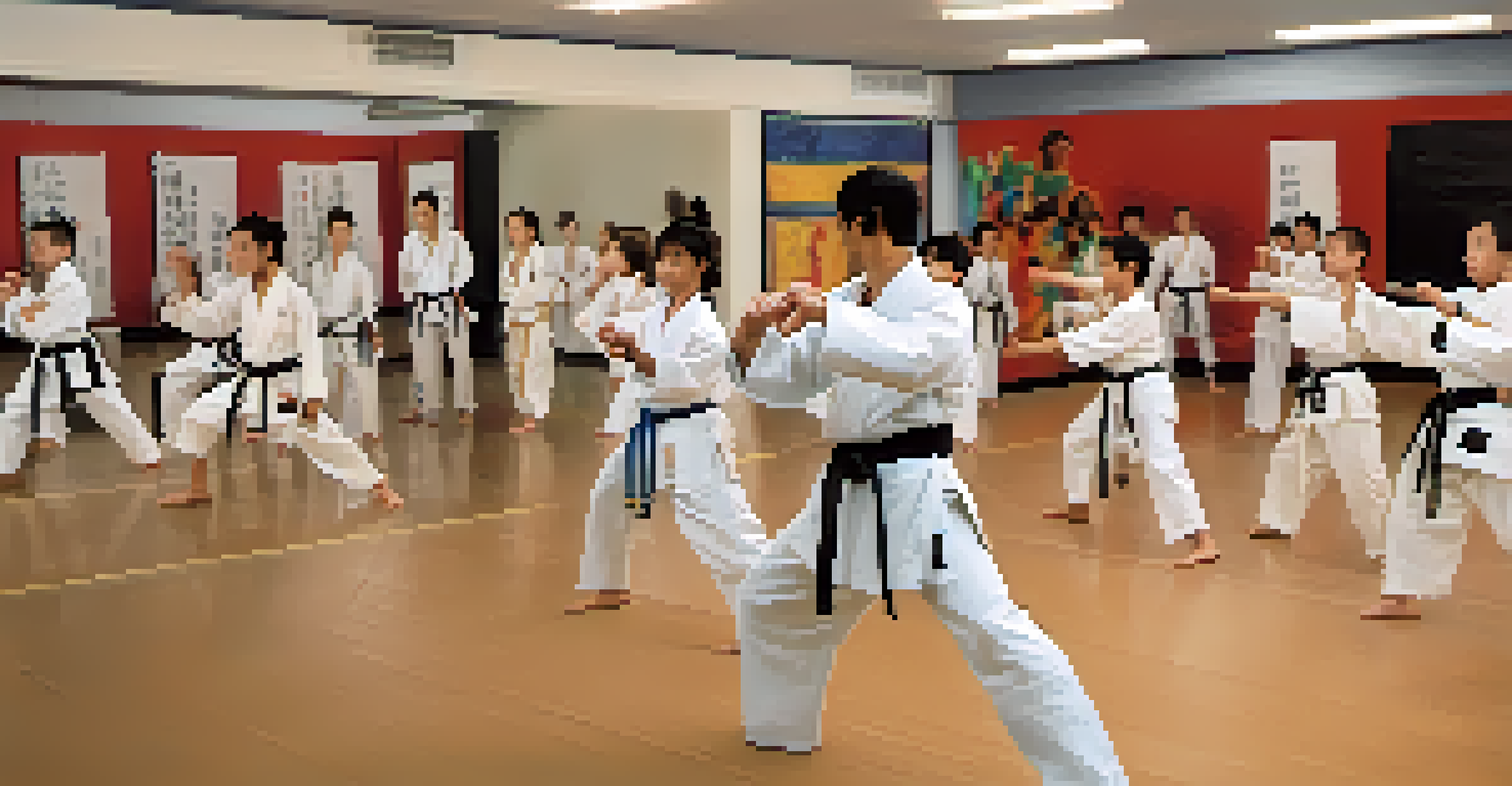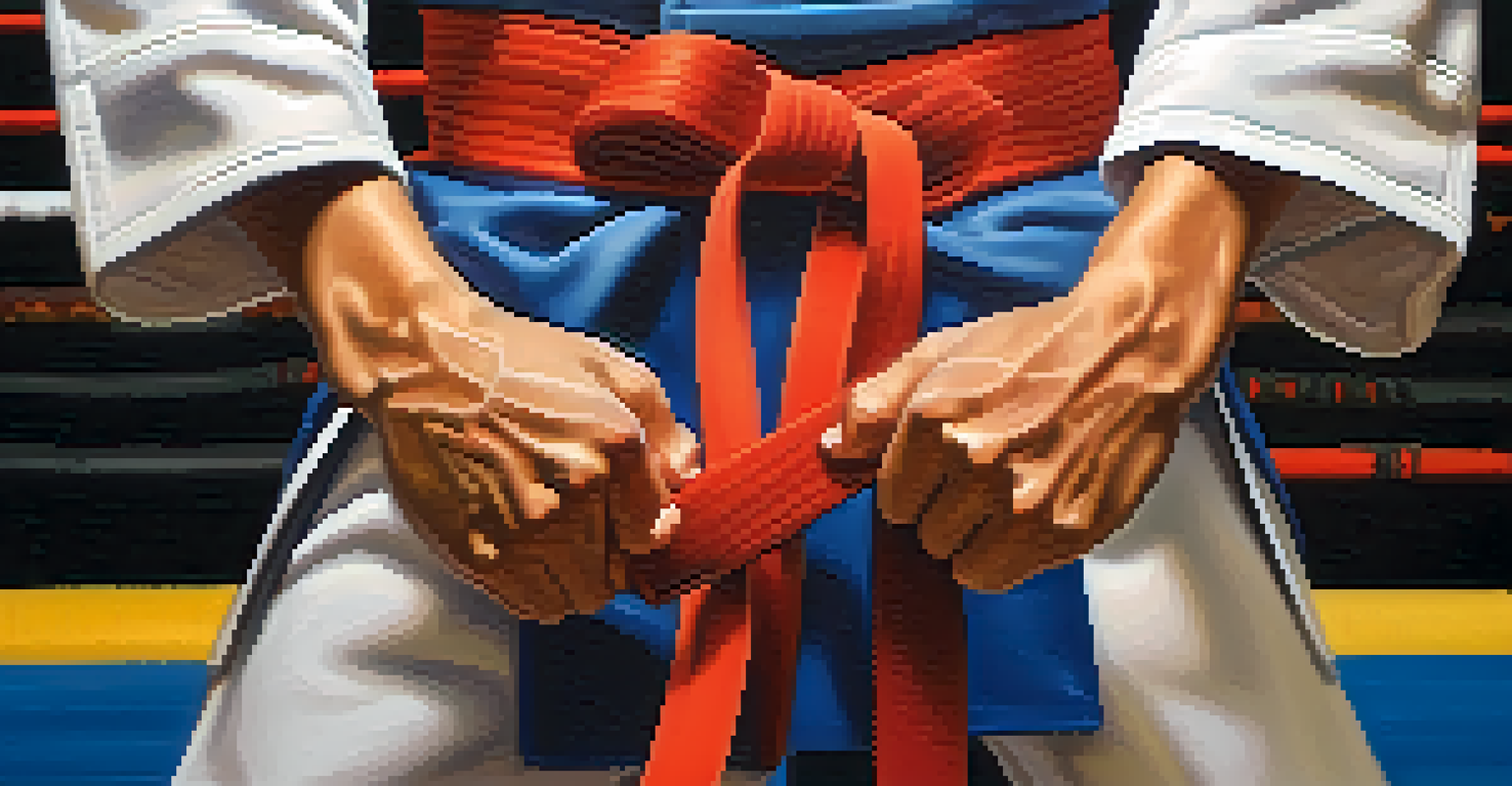Emotional Intelligence and Martial Arts: A Leadership Link

Understanding Emotional Intelligence in Leadership
Emotional intelligence (EI) refers to the ability to recognize and manage our own emotions, as well as the emotions of others. In leadership, having a high EI is crucial because it helps leaders navigate interpersonal relationships with empathy and insight. For martial artists, this skill isn't just about physical combat; it's also about understanding the emotional dynamics at play within the dojo and beyond.
Emotional intelligence is not about being nice. It's about being real, and that often means having tough conversations that can lead to growth.
Leaders with strong emotional intelligence can create a positive atmosphere that fosters collaboration and respect. They are able to assess the emotional climate and adjust their approach accordingly, which is particularly important in high-stress environments like martial arts training. Through this lens, martial arts becomes not just a physical discipline but also an emotional journey.
Moreover, EI contributes to effective conflict resolution, a skill that is invaluable during training or competition. A leader who can manage their own emotions and understand others' feelings can mediate conflicts more effectively, ensuring a harmonious training environment.
The Connection Between Martial Arts and Emotional Intelligence
Martial arts training inherently involves understanding oneself and others, making it a perfect context for developing emotional intelligence. Practitioners learn to read body language and interpret non-verbal cues, which enhances their emotional awareness. This skill is transferable beyond the dojo, helping individuals relate better in everyday situations.

In martial arts, practitioners often face challenging scenarios that require emotional regulation. Whether it's maintaining composure during a sparring match or handling disappointment after a loss, these experiences cultivate resilience and self-awareness. These qualities are at the heart of emotional intelligence, making martial artists uniquely equipped to handle various leadership challenges.
Emotional Intelligence Enhances Leadership
Leaders with high emotional intelligence can effectively manage their own emotions and empathize with others, fostering a positive and collaborative training environment.
Additionally, many martial arts philosophies emphasize respect and humility, values that align with the principles of emotional intelligence. By embodying these values, martial artists can lead by example, inspiring others to develop their own emotional awareness and empathy.
Leadership Styles in Martial Arts
Different martial arts styles often promote varying leadership approaches, influenced by their cultural origins. For instance, traditional styles like Karate may emphasize discipline and respect, while modern styles like Brazilian Jiu-Jitsu often focus on adaptability and strategy. Understanding these nuances can help leaders tailor their emotional intelligence to align with their specific martial arts context.
The greatest weapon against stress is our ability to choose one thought over another.
Transformational leadership is frequently showcased in martial arts, where leaders inspire and motivate their students. This type of leader exhibits high emotional intelligence by recognizing individuals' strengths and weaknesses, fostering an environment where everyone can thrive. The ability to uplift others is essential in martial arts, where personal growth is a primary goal.
Conversely, a transactional leadership style might focus on rewards and punishments, which can stifle emotional growth. Leaders who prioritize relationships and emotional connections tend to cultivate a more supportive and engaging training atmosphere, ultimately leading to better outcomes for their students.
Building Trust Through Emotional Intelligence
Trust is the bedrock of any effective leadership. In martial arts, where teamwork and collaboration are vital, leaders must establish trust among their students. Emotional intelligence plays a key role in this process, as leaders who demonstrate empathy and understanding foster a safe space for open communication.
When students feel understood and valued, they are more likely to engage fully in their training and take risks needed for growth. Emotional intelligence allows leaders to connect with their students on a personal level, enhancing their motivation and commitment. This connection not only bolsters trust but also creates a sense of belonging within the martial arts community.
Empathy Builds Stronger Communities
By demonstrating empathy, martial arts leaders create a supportive community where members feel valued, leading to stronger connections and engagement.
Moreover, trust built on emotional intelligence can lead to better retention rates in martial arts schools. When students feel trusted and supported, they are more likely to remain committed to their training, leading to a stronger, more cohesive group.
Empathy as a Tool for Leadership Success
Empathy, a core component of emotional intelligence, is vital for effective leadership in martial arts. By understanding the emotional states of students, leaders can tailor their instruction to meet individual needs. This personalized approach not only enhances learning but also builds stronger relationships between instructors and students.
In martial arts, empathy enables leaders to recognize when a student is struggling, whether physically or emotionally. A leader who provides support and encouragement in these moments can significantly impact a student’s journey, promoting resilience and perseverance. This nurturing environment encourages students to push their limits, fostering growth both on and off the mat.
Furthermore, empathetic leaders can better navigate conflicts and challenges that arise in training. By approaching situations with understanding, they can facilitate constructive discussions that lead to resolution and learning, reinforcing the values of martial arts.
Developing Emotional Intelligence in Martial Arts
Cultivating emotional intelligence within martial arts training can be approached through various methods. One effective way is through reflective practices, where students are encouraged to assess their emotions and reactions during training scenarios. This self-reflection can lead to greater awareness and emotional growth over time.
Another strategy is incorporating discussions about emotional intelligence into the curriculum. By addressing topics like empathy, resilience, and conflict resolution in classes, students can learn to recognize the importance of emotional skills in their martial arts journey. This holistic approach enriches their training experience and prepares them for leadership roles.
Cultivating EI Through Training
Incorporating reflective practices and discussions on emotional intelligence in martial arts training helps students develop essential leadership skills.
Lastly, role-playing exercises that simulate high-pressure situations can help students practice their emotional responses. By experiencing and managing emotions in a controlled environment, martial artists can enhance their EI skills, ultimately becoming more effective leaders both on and off the mat.
The Impact of Emotional Intelligence on Community Building
Emotional intelligence is crucial for creating a strong sense of community within martial arts. Leaders who practice EI foster an environment where members feel valued and understood, which is essential for building connections. A supportive community encourages collaboration, motivation, and the sharing of knowledge among practitioners.
In martial arts, students often face similar struggles and triumphs, creating a unique bond among them. Leaders with high emotional intelligence can leverage these shared experiences to strengthen community ties. By recognizing each member's contributions and celebrating their progress, leaders can cultivate an inclusive atmosphere that promotes unity.

Ultimately, a strong community not only enhances individual experiences but also elevates the overall effectiveness of the martial arts program. When members feel emotionally supported, they are more likely to engage actively, leading to a vibrant and thriving martial arts culture.